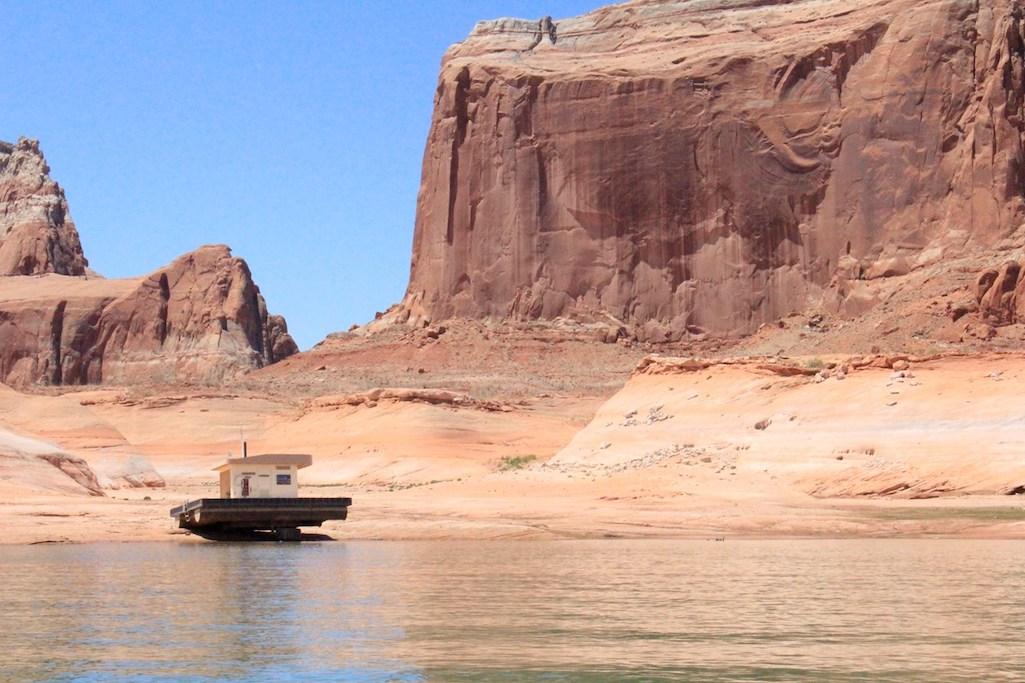
Changing lake levels have left this floating restroom stranded on rock. The bathroom, once located near Dominguez Butte, has been moved to deeper water as of June 2021/NPS
As water levels continue to drop at Lake Powell in Glen Canyon National Recreation Area in Utah and Arizona, the National Park Service has launched a website dedicated to tracking which boat ramps are operational.
Since 2001, declining water levels due to climate change and 20 years of drought have reshaped Lake Powell’s shoreline, said park staff.
- Significant changes to the shoreline will affect usability of boat launch ramps throughout the year, especially in warmer months. Visitors are asked to plan ahead and prepare for longer lines, limited parking and congestion at boat ramps and docks. To relieve launch ramp congestion, you should ready your boat at a nearby parking lot before driving to launch ramps. View the current status of your preferred launch destination before heading to the lake.
- On Lake Powell, boaters should be aware that as water levels drop, channels may narrow leading to increased boat congestion. Boaters should exercise caution in all areas of Lake Powell. Availability of restrooms, floating walkways, pump out, fuel and convenient stations may vary. View the current status of on-lake facilities.
There are many new places to explore as water levels change, and the scenic shoreline is always evolving. Check current lake levels to plan ahead and prepare for your visit to Glen Canyon.
For real-time updates on the elevation of Lake Powell, visit this site.



Comments
Anon - if they are so "intelligent" why have they been so wrong?
Why is climate prediction so complicated?
http://www.bbc.co.uk/sn/hottopics/climatechange/moreaboutexperiment.shtml
"...the broad-brush conclusions drawn by models about global warming have been largely accurate for decades. And that means there’s high confidence that newer, improved models are also getting the basics right.":
https://www.scientificamerican.com/article/climate-models-got-it-right-o...
" climate models have come a long way from the simple energy balance and general circulation models of the 1960s and early ‘70s to today’s increasingly high-resolution and comprehensive general circulation models. “The fact that many of the older climate models we reviewed accurately projected subsequent global temperatures is particularly impressive given the limited observational evidence of warming that scientists had in the 1970s, when Earth had been cooling for a few decades”:
https://climate.nasa.gov/news/2943/study-confirms-climate-models-are-get...
LOL - The seventies were calling for global cooling. More recently there have been predictions of more and more severe hurricanes - didn't happen. Prediction the Artic Ice cap would disappear. Didn't happen. Predictions of more tornadoes. Didn't happen. Predictions of more and more severe forest fires. Didn't happen. The list of failed predictions is virtually endless.
Thanks for proving my point.
None of that has happened? What planet do you live on?
Do you not consider twenty years of drought a change in climate? Where did politics come in?
Planet Earth - Mike - Do a little research on your own rather than getting spoon fed the propaganda from the alarmist.
I am puzzled why posters here continue to engage with the right-wing trolls who contribute nothing of value to this site.